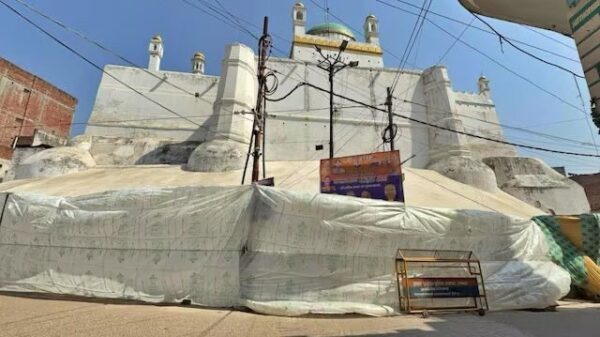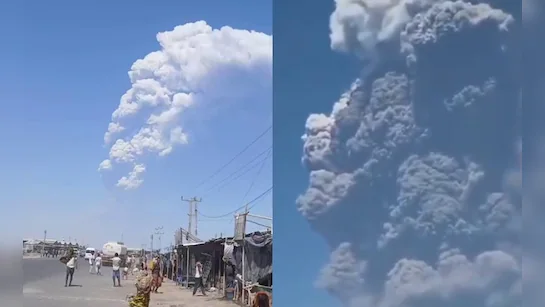A volcano in Ethiopia’s northeastern Afar region has erupted for the first time in nearly 10,000 years, and its ash cloud has drifted across several countries, reaching as far as Delhi and other parts of northwest India. The ash plume from the Hayli Gubbi volcano swept across Rajasthan, Gujarat, Maharashtra, Delhi-NCR and Punjab on Monday night.
The India Meteorological Department said the cloud will move out of Indian skies by 7:30 pm on Tuesday before travelling toward China. High-level winds carried the ash across the Red Sea and Arabian Sea before it entered India. It travelled at speeds of 100 to 120 km per hour at altitudes between 15,000 and 25,000 feet, and in some areas it rose to 45,000 feet.
The Directorate General of Civil Aviation has advised airlines to avoid all regions affected by volcanic ash. Officials said the plume reached Delhi around 11 pm on Monday, prompting aviation authorities to issue safety guidelines that have disrupted several flights. Airlines have been told to adjust routes and fuel planning and to immediately report any signs of ash, including engine issues or smoke and odour inside the cabin. Airports have also been asked to inspect runways and taxiways if ashfall is suspected.
A Mumbai airport official said some flights are being rerouted through Pakistan’s airspace, but restrictions for Indian carriers mean several have been affected. “We have started keeping a record of this and are monitoring the situation,” the official said.
Air India cancelled eleven flights, including services from New York to Delhi, and said hotel accommodation and alternate travel arrangements were being provided. Akasa Air also cancelled flights to and from Jeddah, Kuwait and Abu Dhabi on November 24 and 25. IndiGo issued a statement assuring passengers that it was monitoring the situation closely in coordination with global aviation bodies and that safety was its highest priority.
Weather agencies said the ash cloud does not pose a threat to India’s air quality index but contains sulphur dioxide and small particles of glass and rock. Experts believe SO₂ levels may rise in the Himalayas, Nepal and parts of the Terai region in Uttar Pradesh. The cloud is expected to move toward China and then disperse into the upper atmosphere over the Pacific Ocean.
The volcano erupted on Sunday morning, sending a thick plume of ash almost 14 kilometres into the air and covering nearby villages in Ethiopia. Residents in the Afar region described hearing a loud blast. One person told AP that it felt “like a sudden bomb had been thrown with smoke and ash.” The Smithsonian Institution’s Global Volcanism Program noted that Hayli Gubbi has had no confirmed eruptions in the past 12,000 years.




























































